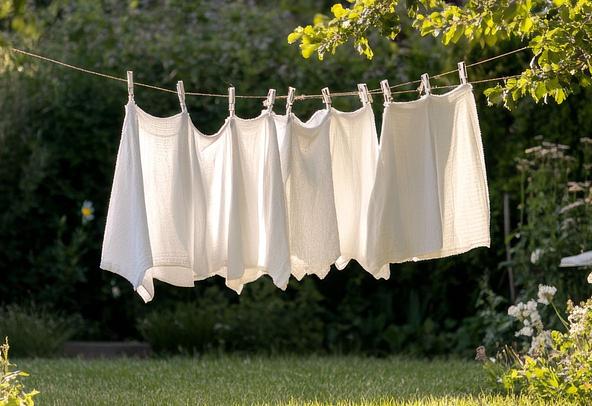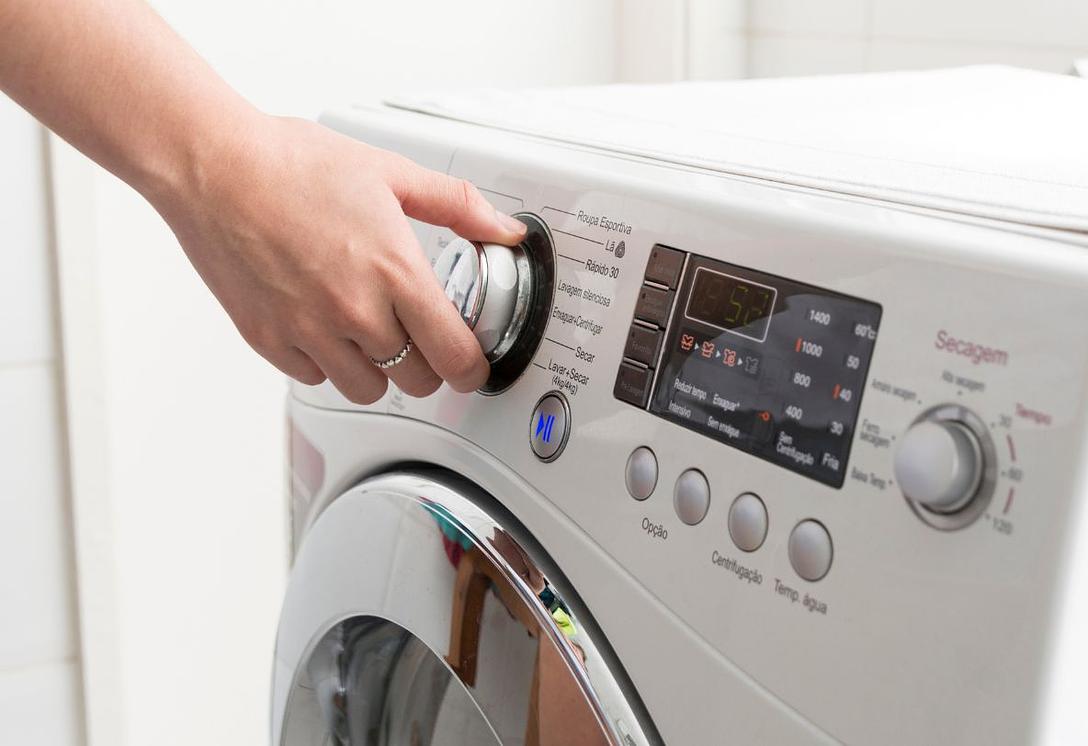Washing linen: Linen care tips
How to wash, dry and iron your linen fabrics? The Alliance shares some tips on how to look after your linen textiles. Discover our advice on how to preserve linen fibre over the long term.

How to wash, dry and iron your linen fabrics? The Alliance shares some tips on how to look after your linen textiles. Discover our advice on how to preserve linen fibre over the long term.

Our linen care tips for looking after your household linen, table linen, bed linen or wardrobe.
Recognized as a quality fabric, linen is perfectly suitable for machine washing. Linen can even be washed at high temperatures. In addition, it supports well the spin and drying machine. Easy to maintain, it is a textile that becomes more flexible and soft over the washing.
It is advisable to use a detergent without bleaching agents for washing linen in the washing machine. Fine linen mesh, such as jersey, can also be machine washed on a gentle schedule.
Before washing linen in the washing machine, always follow the instructions on the labels. They indicate the wash cycle and temperature to be used.
Some linen garments require dry cleaning according to clothing elements: linings, buttons...

To avoid stress on natural fibres, select a delicate program and a temperature of 30°C. Use a mild and if possible natural detergent to preserve the quality and color of the fabric.
Before washing, shake the curtains to remove any dust that may have accumulated over time. Select a low temperature (30°C) gentle machine wash program and choose a detergent suitable for delicate textiles. Avoid intensive spinning as it could greatly wrinkle the fibres.
To preserve the colour and flexibility of linen curtains, dry them in the open air without direct sunlight.
To wash a linen pants while preserving its quality, you must follow some simple steps. Machine wash at 30°C, with a gentle program to avoid brittle fibres. Use mild detergent.
To wash a linen shirt without damaging it, choose a delicate cycle and a maximum temperature of 30°C. Use a detergent suitable for fragile textiles, avoiding any aggressive products such as bleaching agents.
To preserve the beautiful lightness of linen, a low spin is advised, even if possible to avoid. Drying in the open air, in the shade, is ideal.
Avoid heavy wringing, which could cause marked folds and damage the fabric texture. For drying, prefer the open air, away from direct sunlight, to avoid discoloring the fabric.
Linen must be carefully centrifuged to preserve the nature of the fibre. Select a gentle wash cycle to limit the impact of spin on the fibres. Too much spin can not only wrinkle the flax, but also reduce its longevity.
It is best to avoid a program with spinning to preserve the flexibility of the linen fabric.
Flax is a vegetable fiber that requires special care when drying.
The use of a tumble dryer is not always recommended. Excessive heat can alter the quality of the fabric and possibly cause shrinkage.
Choose a low temperature, gentle program. Remove the laundry from the drum when it is still slightly damp to facilitate ironing.
However, it is best to dry the flax in the open air, away from direct sunlight. The textile will thus preserve the qualities of flax fibres, allowing it to retain its flexibility.
To iron linen without damaging it, it is important to respect a good temperature. Although flax is a resistant vegetable fibre, you must nevertheless know how to treat it with delicacy. Linen ironing requires a temperature between medium and high, usually around 200°C.
Iron the linen still slightly damp. If the fabric is dry, it is advisable to moisten it slightly with steam iron. Make sure to iron the linen fabrics on the other side to preserve their appearance.
Iron the linen shirt when it is still slightly damp. The iron should be set to medium. Iron the shirt on the back side to avoid damaging the fibre or even burning it.
Finally, hang the linen shirt once ironed on a hanger to keep its shape impeccable. The care applied to a linen garment guarantees that it will keep for a long time and in perfect condition.
For time-yellowed textiles that are quite bulky, such as linen sheets, several bleaching methods exist:
{{message}}